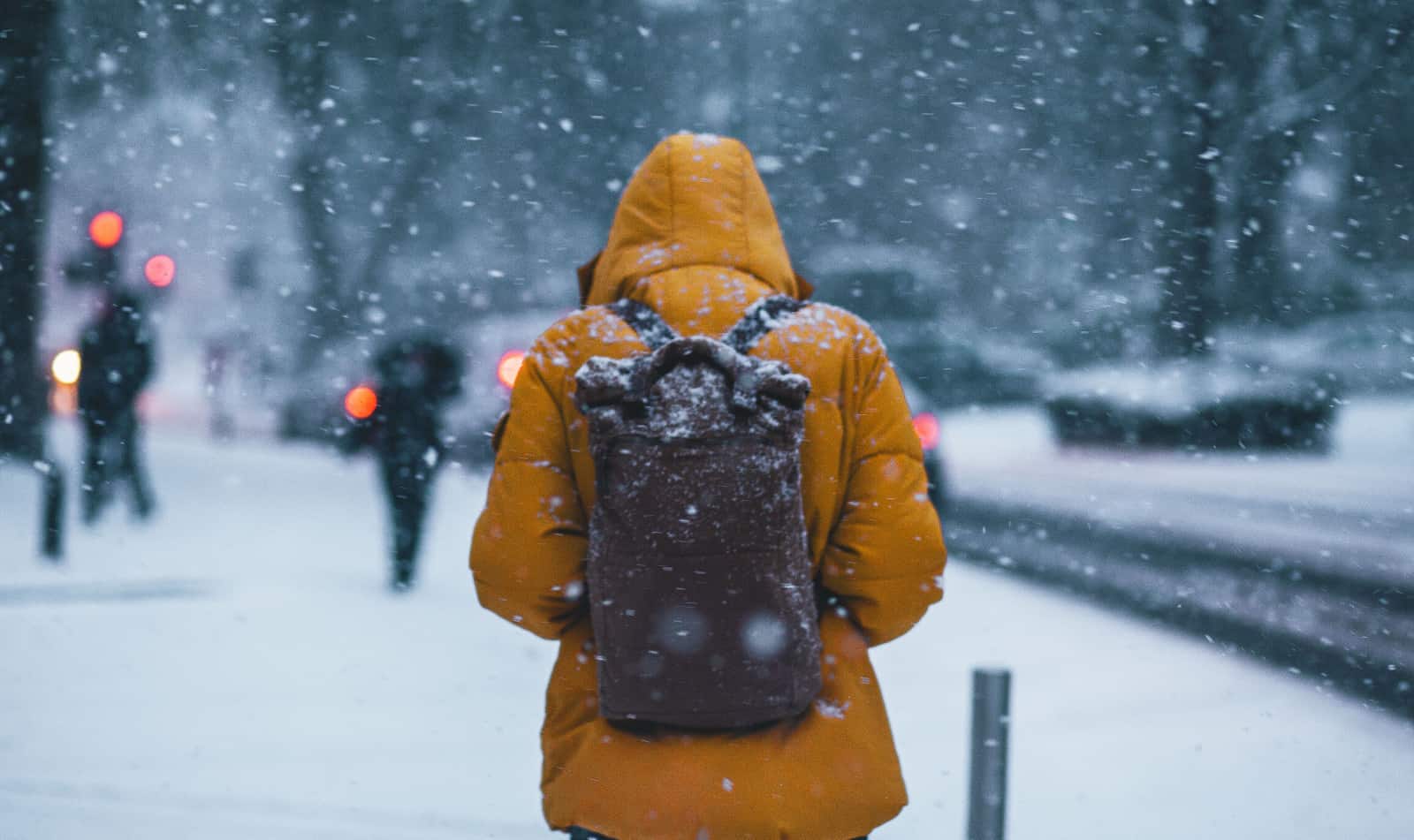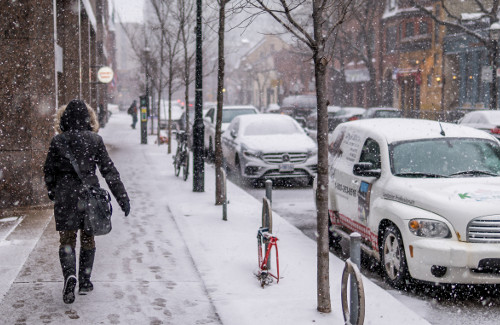GET IN TOUCH
Please contact us for more information. Our email is monitored seven days a week and we will get back to you shortly.

In a recent incident in Burnaby, a man claimed that the owners of a property he had slipped and injured himself on were liable due to their failure to fully clear the sidewalk of snow and ice. Municipalities across BC have various rules about maintaining sidewalks in front of homes, for example, property owners in Vancouver must clear the snow and ice from the sidewalks around their property before 10:00am each morning. Failure to comply with these rules can lead to fines issued by the district.

Mr. Der, an elderly man, and his wife were walking home from the grocery store one snowy morning when he slipped and fell on black (clear) ice. Someone had visibly shovelled the sidewalk, which gave Der the impression that it was ice-free. Der fell hard on his back and neck, suffering “serious, life-changing injuries.” The emergency responders who arrived to attend to Der noted how slippery the area was and needed to put blankets on the ground to maneuver and assist him.
Der was seeking damages for negligence against the owners of the property adjacent to this sidewalk. In Der v. Zhao (2019), Der argued that Zhao and Huang (the property owners) were liable under common law principles of negligence. Sometimes, a slip and fall case like this would find liability under the Occupiers’ Liability Act; however, the City owned the sidewalk, not the defendant. Initially, Der chose to include the City of Burnaby in his lawsuit, but he discontinued the action against them after conducting an examination for discovery with a City of Burnaby representative.
This case was a summary trial in the BC Supreme Court, which means that it was based solely on written evidence. A judge can hear a summary trial much faster than a traditional trial. The courts used affidavits, expert reports and written arguments as evidence in this case.
The issue of the case was whether Zhao and Huang owed Der a duty of care. Was this injury foreseeable to a reasonable person given the circumstances?
Prior to the accident, the couple salted and shoveled the sidewalk, clearing all the ice and snow that they saw. Neither of them was ever aware that there was black ice on the sidewalk. Huang noted that she took particular care to clear the sidewalks this day because her and Zhao were moving into the house the day the incident occurred. She applied salt to all the ice and slippery areas that she noticed – to ensure the movers would not slip.
The accident reconstruction expert of the trial claimed that the act of clearing the ice and snow actually made this particular area even more slippery. With the temperature fluctuating above and below zero degrees Celsius throughout the day, coupled with shovelling, salting, and snow and rain, the sidewalk developed significant black ice. The expert believed that the snow, if not shovelled, could have made the path less slippery by providing some traction.
Der argued that leaving the sidewalk untouched would not have led to a voluntary assumption of responsibility. He claimed that the reasonable person in this situation would have foreseen the possibility of black ice developing and removed it.
The judge ruled Der unsuccessful in proving his argument. It was deemed common sense that shovelling snow and salting the sidewalks would indeed make it safer or less dangerous – not make it more hazardous. It was unreasonable for Zhao and Huang to foresee this anomaly. The judge also stated that, “it [was] not reasonable to interpret an attempt to comply with a bylaw as a voluntary undertaking to the City to maintain the sidewalk and resolve dangers that later form on it.” Zhao and Huang were not held liable for this injury simply because they may have unintentionally made the sidewalk more dangerous than if it was left untouched. The summary case was ruled in favour of Zhao and Huang.
The judge also referred to the implications that this case would have for the future well-being of society. If Der was successful with this claim, people may be less willing to clear their sidewalks, leading to an increase in injuries. If the claim were succesful, it could mean that property owners who attempt to clear sidewalks assume greater liability for slip and fall injuries.
Going forward, homeowners should continue to clear snowy sidewalks around their homes. This will minimize the risk of injuries and help to avoid bylaw fines. Pedestrians walking in snowy conditions should always be extremely cautious as black ice could be anywhere.
Looking for more information? Read our page on slip and fall injury claims in BC.
Have a question about this topic or a different legal topic? Contact us for a free consultation. Reach us via phone at 250-888-0002, or via email at info@leaguelaw.com.